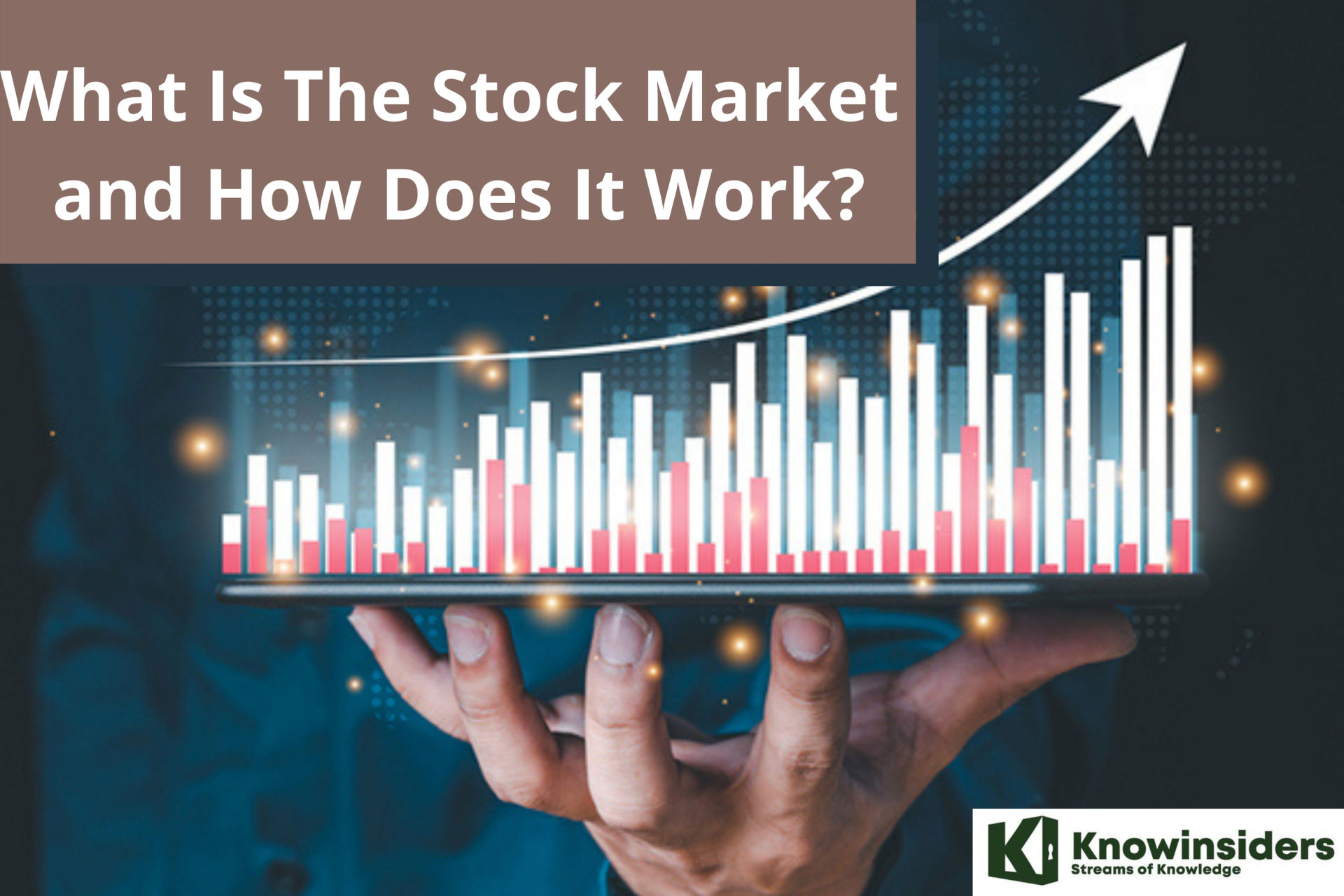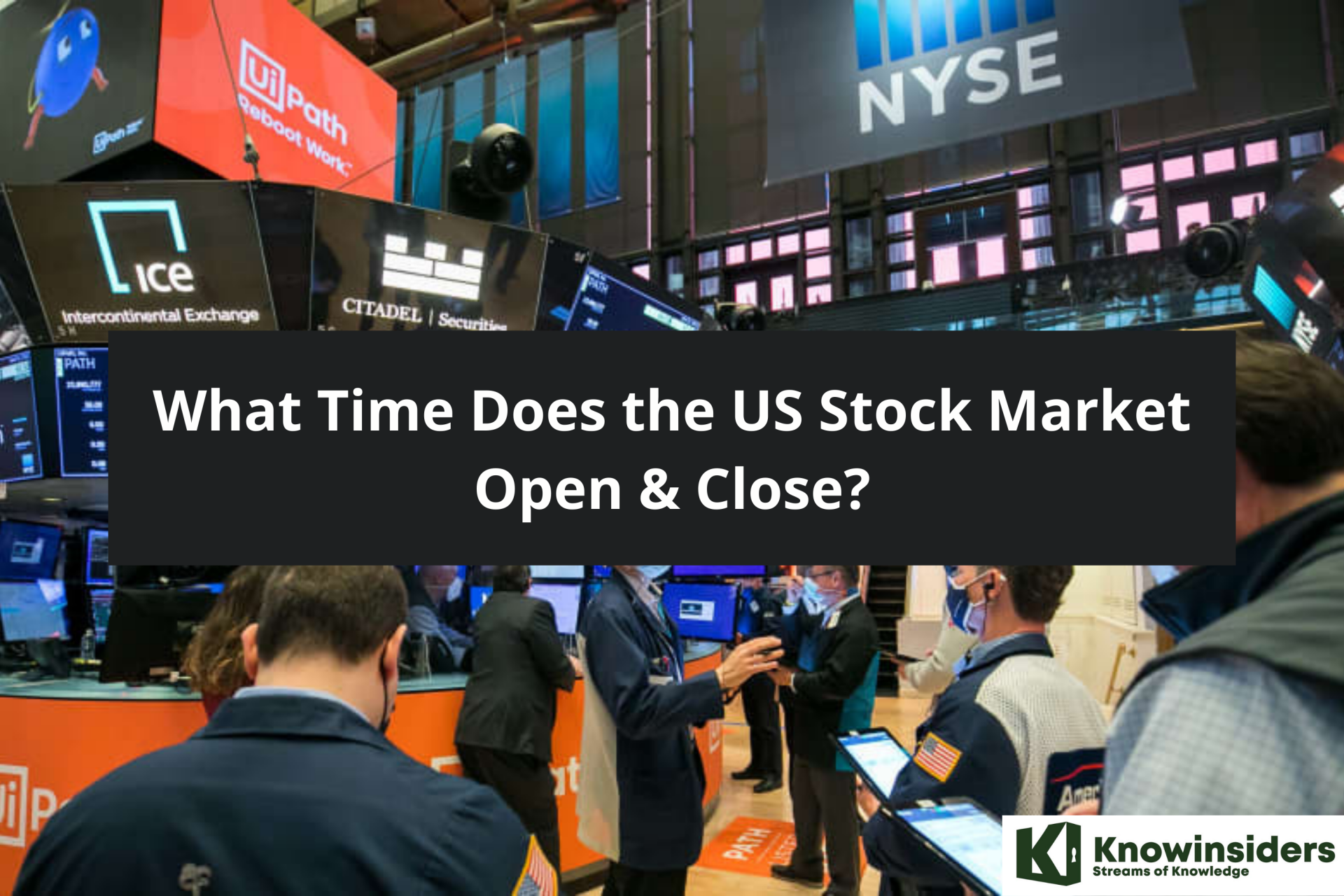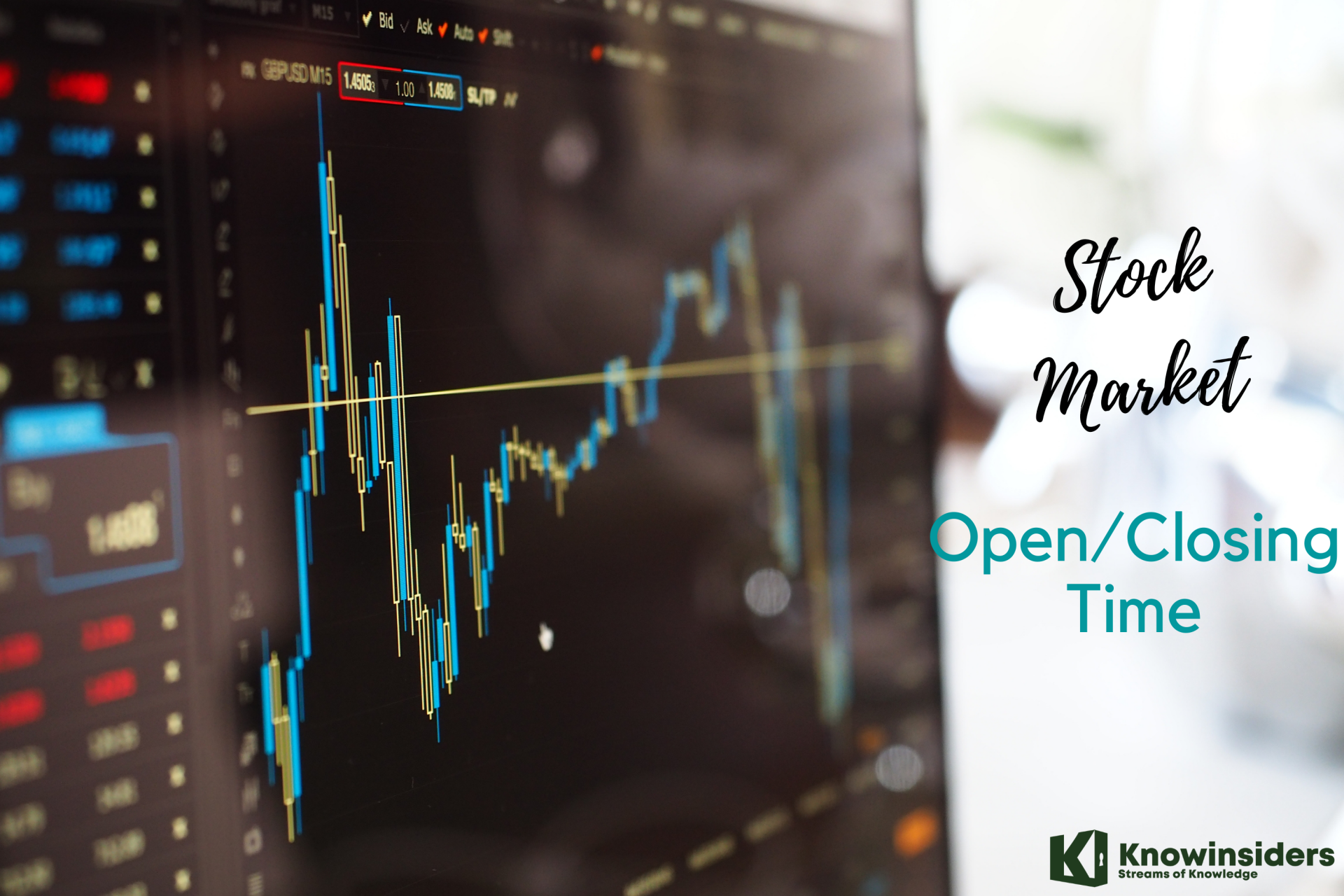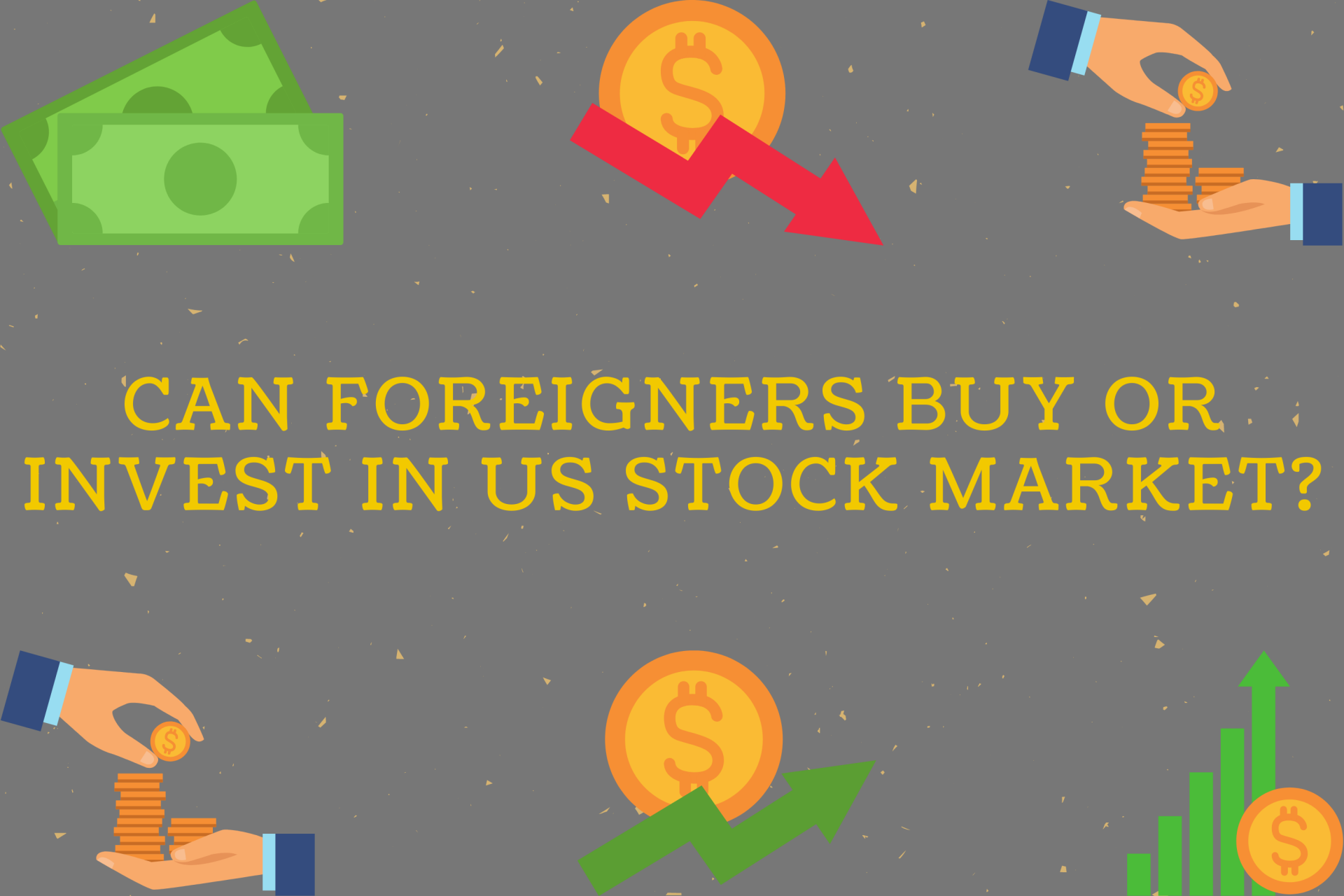U.S. Stock Market Holiday Schedule: Is the NYSE or Nasdaq Open or Closed?
 |
| U.S Stock Market Holidays - Full List of Dates |
| Contents |
Both exchanges (NYSE and Nasdaq) have regular business hours from 9:30 a.m. to 4 p.m. ET, Monday through Friday. On Saturdays and Sundays, markets are closed.
As is frequently the case with Good Friday and Easter, stock markets will occasionally close on the Friday before a holiday that falls on a weekend. In other cases, a holiday will be observed the Monday following it.
When are the holidays in the stock market? Check out the days when the bond market, NYSE, and Nasdaq are closed.
• Read more: What Time Does the US Stock Market Open and Close - NYSE, Dow Jones, Nasdaq
U.S Stock Market Holiday Dates: When is the Stock Market Closed?
Below is the schedule stock market holidays when the NYSE, Nasdaq and bond markets are closed:
• Monday, Jan. 1— New Year’s Day
• Monday, Jan. 15 — Martin Luther King Jr. Day
• Monday, Feb. 19 — Presidents’ Day
• Friday, March 29— Good Friday
• Monday, May 27 — Memorial Day
• Wednesday, June 19 — Juneteenth National Independence Day
• Thursday, July 4 — Independence Day
• Monday, Sept. 2 — Labor Day
• Thursday, Nov. 28— Thanksgiving Day
• Wednesday, Dec. 25 — Christmas Day
Note:
• The Nasdaq Stock Market and the New York Stock Exchange (NYSE) will be closed on ten holidays, including Martin Luther King Jr. Day. On Monday, January 15, the exchanges will not be in operation.
• On business days, the exchanges are normally open from 9:30 a.m. to 4 p.m. ET. Three days in 2024 will see them close early, at 1 p.m. ET: Wednesday, July 3, the day before Independence Day; Friday, Nov. 29, the day after Thanksgiving; and Tuesday, Dec. 24, Christmas Eve.
• This is due to a vote by Congress in 2021 designating Juneteenth, the June 19 holiday that honors the abolition of slavery, as the eleventh federal holiday. Juneteenth became the first federal holiday to be observed after Martin Luther King, Jr. Day was established in 1983 when President Joe Biden signed the bill.
Read more: Can Foreigners Buy or Invest in the US Stock Exchange?
Early Stock Market Closures
Except on the day before Independence Day, Black Friday, and Christmas Eve, when the Nasdaq and NYSE close at 1 p.m. ET, the stock market typically operates according to its holiday schedule without any additional early closures.
July 3 — Day before Independence Day
Nov. 29 — Day after Thanksgiving
Dec. 24 — Christmas Eve
Bond Market and Bank Holidays in the U.S
The bond markets also observe two extra holidays in addition to the ten stock market holidays:
Monday, Oct. 14 — Columbus Day
Monday, Nov. 11 — Veterans Day
Every year, the bond markets also observe a few early closings at 2:00 PM:
• The Thursday before Good Friday – Thursday, March 28
• The Friday before Memorial Day – Friday, May 24
• The day preceding Independence Day – Wednesday, July 3
• Black Friday, or the day after Thanksgiving – Friday, November 29
• Christmas Eve – Thursday, December 24
• New Year's Eve – Tuesday, December 31
Under rules established by the Securities Industry and Financial Markets Association, a trade association that represents banks, asset management firms, and securities firms, bond traders observe a different holiday calendar. The U.S. bond market is closed on the ten days that the stock exchanges are closed, in addition to Monday, November 11 (Veterans Day) and Columbus Day (October 14).
Six times in 2024—the Friday before Memorial Day, the day before Independence Day, the day after Thanksgiving, Christmas Eve, and New Year's Eve—the bond markets will close early (at 2 p.m. ET).
The holiday schedule that most US banks adhere to is not the same as the stock market calendar. The Federal Reserve observes Veterans Day and Columbus Day, refrains from working on Good Friday, and does not have any official early closing days set.
| The regular trading hours for the New York Stock Exchange (NYSE) and Nasdaq Stock Market are 9:30 am to 4 pm on weekdays, for those who are curious about other questions such as what time the market opens. Typically, bond markets are active from 8 a.m. to 5 p.m. On days with early closures, the stock markets close at 1 pm. At 2:00 pm, the bond market closes early. (Unless otherwise specified, all times are Eastern.) |
Temporary US Stock Market Stoppages
Although unexpected stock market closures are rare, "circuit breakers" can occasionally cause brief halts to trading.
Circuit breakers were first made available following the October 1987 Black Monday crash. The Dow fell by nearly 23% in a single session—a record that still stands today.
The purpose of circuit breakers is to prevent panic sales. Similar to a sports timeout, a brief stop in trading gives participants a chance to gather themselves, but it doesn't guarantee that stocks won't fall once trading starts up again.
Circuit breakers are categorized into three levels based on how sharply the market declines:
A Level 1 market-wide circuit breaker is tripped if the S&P 500 falls 7% from its previous close.
A Level 2 circuit breaker comes into effect when the market plunges 13%.
A Level 3 circuit breaker kicks in if the market tanks 20%.
Trading stops for at least fifteen minutes in the event of a Level 1 or Level 2 breach. Trading is suspended for the duration of the trading day in a Level 3 rout.
Circuit breakers of Level 1 and Level 2 can be tripped between 9:30 am and 3:25 pm. It is possible for a Level 3 breach to occur at any time.
Extraordinary U.S Stock Market Closures
Additionally, the market has occasionally closed down in the past after disastrous incidents. The market was unable to open on September 11, 2001, due to the attacks on the World Trade Center and Pentagon. The exchanges remained closed until September 17.
For an example of the stock market collapsing earlier, you have to go all the way back to World War I. From July 31 to November 28, 1914, The New York Stock Exchange was closed due to the outbreak of hostilities in Europe.
In its existence, the market has only twice gone completely dark. During the Panic of 1873, the New York Stock Exchange (NYSE) closed for ten days, and following President Abraham Lincoln's assassination in 1865, it took a week off from trading.
Furthermore, markets usually close down in honor of the passing of a former president; this happened most recently in December 2018 for the funeral of former President George H. W. Bush.
Stock exchanges rarely sleep for longThree-day holiday weekends are the longest periods of silence in the stock market, unless there are unusual circumstances. Only a few times in the last century have the exchanges been closed for longer than three days at a time; the most recent instances were following the 9/11 attacks in 2001 and during Superstorm Sandy in 2012. According to Sam Stovall, chief investment strategist at investment research firm CFRA, the three-day limit is a rule of thumb rather than a formal policy that keeps "investor angst" from building up during an extended down period and causing volatility when the market reopens. |
 What Is The Stock Market and How Does It Work: History, Types and More What Is The Stock Market and How Does It Work: History, Types and More What is the stock market and what role does it play? To better understand the mechanics of the stock market, let's start with the definition ... |
 What Time Does the US Stock Market Open and Close - NYSE, Dow Jones, Nasdaq What Time Does the US Stock Market Open and Close - NYSE, Dow Jones, Nasdaq When does the US stock market (NYSE, Dow Jones, Nasdaq,...) open or close? Check out the opening & closing hours, break, holidays and more. |
 What Time Do the American and Asian Stock Markets Open? What Time Do the American and Asian Stock Markets Open? The stock market hours will reflect the opening and closing times of each exchange since shares are traded on numerous exchanges around the world. Learn ... |
 Can Foreigners Buy or Invest in the US Stock Exchange? Can Foreigners Buy or Invest in the US Stock Exchange? How do non-US residents buy (invest in) stocks in the United States? Continue reading to learn about the guidelines and tips for foreigners investing in ... |























